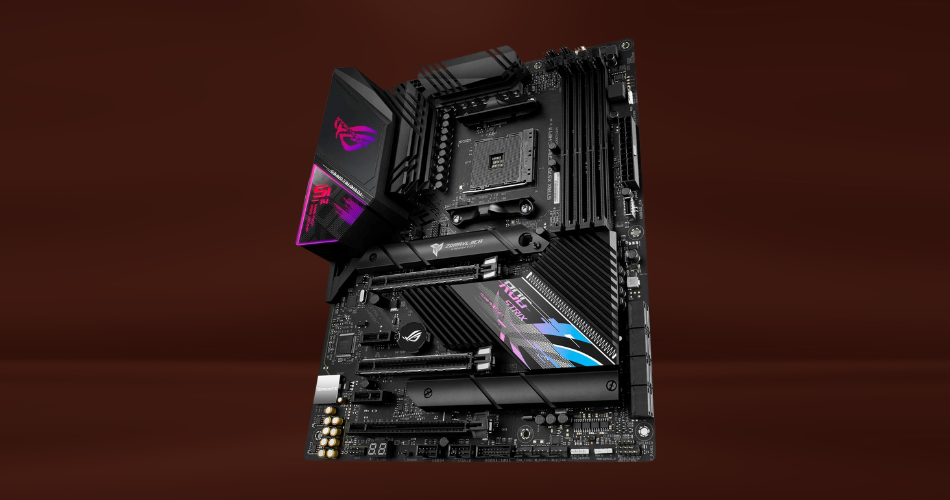Both the Ryzen 5 5600X and the Ryzen 7 5700X are more than capable as gaming CPUs and - true to AMD form - are workstation thoroughbreds that offer the multi-threaded performance we've come to expect.
When we introduced our readers to the AMD 5000-series, we heralded AMD for the way they conducted themselves in the pandemic and subsequent supply chain issues, offering many a way to play games and stay creative with great value processors. Back in 2020 and 2021, of course, AMD had leverage over Intel in many respects. Though a wind of change has been blowing since the advent of Alder Lake, AMD still have a hardcore fanbase that was once their monopoly. For those remaining, core AMD fans, however, there are some great options to upgrade from the impeccable 2000-series and 3000-series (or earlier) - it's just become a little foggy on which CPU to move up to.
With some confusion for consumers as to where they land in the upgrade cycle of AMD fans, we've broken down exactly who should buy these chips, and why.
Ryzen 5 5600X - The AM4 upgrade legend
Offering great compatibility with older generation motherboards, the 5600X is a great way to upgrade a 4 - 5 year old system without doing much hard labour. For most, however, the cost difference between the Ryzen 5 5600X, the Ryzen 5 5600 and the Alder Lake contenders is a head-scratcher.
Ryzen 5 5600 vs Ryzen 5 5600X
Whilst there is a lot to compare against the AMD Ryzen 5 5600, which has very similar specifications, the Ryzen 5 5600X does pull ahead in terms of performance to the tune of around 2% in various benchmarks. The Ryzen 5 5600 is, of course, basically a run of 5600X processors that did not meet the requirements to earn the 'X' - but that's not a bad thing, and does not reflect badly on AMD's QC.
The Ryzen 5 5600X operates at a base clock of 3.7GHz with a decent 4.6GHz boost clock speed. The 5600 drops those frequencies to 3.5GHz and 4.4GHz which doesn't affect the 5600 under normal operating parameters, but you will see lower performance in some benchmarks. That said, real world and benchmarks are two different things, as we all know.
| | AMD Ryzen 5 5600 | AMD Ryzen 5 5600X |
| Cores | 6 | 6 |
| Threads Supported | 12 | 12 |
| L3 Cache | 31MB | 32MB |
| Base Clock | 3.5GHz | 3.7GHz |
| Boost Clock | 4.4GHz | 4.6GHz |
| TDP Rating | 65 watts | 65 watts |
| Socket | AM4 | AM4 |
The fabrication of processors is a fine art, but not without defects - large or small. When a run of pressed silicon is finished, if it does not meet the QC for the intended product line, the manufacturer will go back to the bench and figure out the problem, make adjustments to the specification, and continue pressing the "new" spec of CPUs for a lower end SKU. This is a cost saving exercise that is practiced by all manufacturers of processors.
With the 5600, we can see that the L3 cache has been slightly adjusted (31MB) as opposed to the 32MB of the Ryzen 5 5600X. Usually, clock speeds or the number of cores are reduced, but in this case, AMD chose to lower the L3 cache slightly. Though it didn't meet the 5600X testing requirements, AMD unlocked a new product line instead.
Both CPUs come with stock coolers, so there's savings to be had from the outset. In terms of performance, the 5600X nudges ahead by a frame or two per second in gaming, but there's a bit more to gain in the creative department. Puget Systems benchmarked Adobe Premiere 2021 with the 5600X at 734 points, beating the 5600 which came in at 709 points using stock frequencies. Adobe Photoshop was another higher scoring benchmark for the Ryzen 5 5600X, scoring 1141 vs 1103 for the Ryzen 5 5600.
When compared with its nearest rival from Team Blue, the Ryzen 5 5600X is a decent contender against the Intel Core i5-12400, coming very close in the benchmarks stakes and within 5% of each other in many tests, The biggest attraction here, of course, is that even if your old AMD system is using a 300-series motherboard, you can swap out the CPU for the 5600X and use the stock cooler provided. Compared with upgrading your entire architecture to a 12th-Gen motherboard and possibly even DDR5 higher costs - things look very good for AMD buyers.
Ryzen 7 5700X vs Alder Lake
There's no denying that AMD would have made much more of an impact if they had released the Ryzen 7 5700X in 2020, but that was not to be. Back then it would have certainly filled the gap that was left between the 5600X and its predecessor, the Ryzen 7 5800X. It would have made a lot of sense for those wishing to move from Ryzen 5 to Ryzen 7 and avoid the temptation of an Intel chip.
Eighteen months after the release of the 5800X, the Octa-Core Ryzen 7 5700X hit the market and was immediately reviewed as being "too little, too late" by some online magazines, and compared - naturally - to the Alder Lake offerings such as the Intel Core i5-12400 and Core i5-12600K. In this comparison, the Alder Lake chips come out on top in terms of pricing and in benchmarks, but at this level the savings need to take the other required components into consideration. For a 12th-Gen processor, you are going to need a new motherboard, and that is last on the list for most people wanting a quick upgrade path for their current system. Even if you're looking to upgrade from an Intel system to a higher end AMD, and you're looking at the 5700X, you'll find that high end AM4 boards like the ASUS ROG Strix X570-E Gaming WiFi II Motherboard versus a 12th-Gen high end board such as the ASUS ROG Strix Z690-A Gaming WiFi D4 Motherboard will see you getting much more value, and saving money in the process with Team Red. There will be some sacrifices such as M.2 slots or marginal maximum memory clock speed limitations, though the savings really are there overall.

Again, like the 5600X, the Ryzen 7 5700X is an AM4 processor that can be used on most 300-series, and the excellent value for money 500- and 600-series. DDR5 is not present, and PCIe 5.0 is also missing, and we'll need to wait for the AMD Ryzen 7000-series for those - but right now that will not affect many buyers. Nobody is heralding the "value for money" of DDR5 memory, and very few manufacturers are talking about PCIe 5.0 very loudly just yet, either, much to Intel's displeasure. Sure, PCIe 5.0 is a very good feature for those who will use the doubled bandwidth, but expectations should be measured, in line with the price premiums and early adopter taxes we see in all new technology for the first couple of years.
If you are one of those enthusiasts who are obsessed with futureproofing for as long as possible, then Intel might be the way for you. For the rest of us, who will hang on to a PC spec for a good few years, and stretch out the lifespan in more logical ways, like keeping an eye on your PC performance for example.
The AMD Ryzen 7 5700X compares very well to Intel Core i5-12600K, with much less power consumption. Although on paper the 5700X is outmatched, it is able to compete with what is possibly one of the best gaming processors available - and that is saying something. In multi-core work, AMD still has the edge, and when you factor in Precision Boost Overdrive 2 (PBO2) feature to boosts multi-threaded performance, you have a good case for upgrading to the 5700X.
In the power consumption stakes, AMD still outclass Intel - especially in Alder Lake comparisons - which speaks to those consumers looking for a more efficient PC with lower thermal output, opting for a cooler and quieter PC.
It's not just upgraders and PC enthusiasts who are benefiting either. For those who are thinking of buying a Ryzen 7 5700X gaming PC off the shelf with a solid GPU like the RTX 3080 and 16GB 3200MHz memory will set you back less than a 12th-Gen equivalent system. Good news, considering whenever you save money on a pre-built PC, you naturally start wondering which components you could upgrade.
Last Word
Until the DDR5 prices and performance is worth comparing to DDR4 PC builds and upgrades, AMD is still a valid choice for upgrading. The AM4 platform, though dated, is still more than enough for today's gaming and creative stresses, offering fast connectivity, high speed SSD options, and superb PCIe 4.0 x16. This translates to the CPU, in that you could happily upgrade your AM4 system with a new motherboard and processor, and still save money over a 12th-Gen upgrade.
Both the 5600X and 5700X are solid processors, and provide AMD fans with a good upgrade path whether they are playing games, or creating 4K video - or both. With very little fuss in the upgrade process, we don't ever have a problem recommending AMD CPUs, regardless of their workload.







